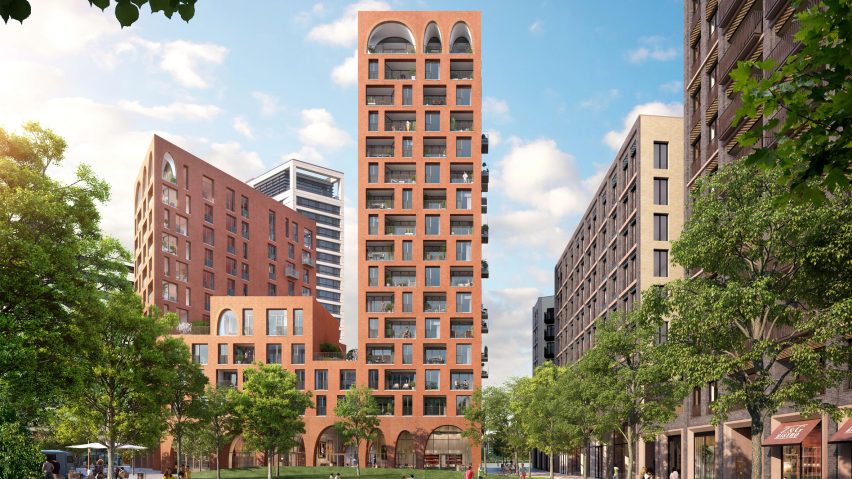Coronavirus will lead to "value shift" in housing design according to architect Alison Brooks, who rejected the trend for micro-homes because "nobody wants less space".
"I don't know anybody who needs less space, or wants less space, especially young people," said Brooks. "Everybody wants more space."
Speaking in a live interview with Dezeen as part of Virtual Design Festival, Brooks said the pandemic was forcing architects to "think a lot harder" about amenities such as balconies and terraces.
"Whether or not there's a pandemic, it's really important to have those outdoor spaces," said Brooks. "I think there's going to be a value shift."
The architect, who has worked on numerous housing projects for individual clients, large-scale developers and local authorities, said coronavirus was forcing a re-evaluation of how homes are designed.
"It is making people think a lot harder about whether they have amenity space like balconies and terraces or French doors on to Juliet balconies," she said. "Everybody's paying a lot more attention to places where you can be outside without being on the street."
"I'm not really a huge fan of the tiny-house movement," she added, responding to a question from a viewer about the trend for housing developments featuring extremely small units. These have been touted as a solution to the housing crisis in cities such as London and New York.
"I think too often the tiny-house model has been used to max out a site in terms of density and maximize the revenue and not provide the kind of spaces that people can stay in for a long time," she said.
In the interview, Brooks described how she came to London from Canada in 1989 and worked with Ron Arad for seven years, before setting up Alison Brooks Architects in 1996.
In a short presentation, Brooks showed projects including Windward House, an extension to a Georgian farmhouse in Gloucestershire, and Cadence, an apartment development proposed for Kings Cross in London.
Brooks said she detected a revival in high-quality housing architecture in the UK and beyond, and a shift in values among architects and clients.
"There's already a value shift that's happening and everybody's thinking really hard about how we should live together in the future and how we can live better together in terms of looking after the planet, the environment, our neighbours, the people who keep us alive and keep us safe," she said.
The experience of living in lockdown heighten the need for architecture that allows people to come together safely, she predicted.
"It's not going to be like we all move to cells for isolation," she said. "I think the opposite will happen. We all want to be together and we all want that actual real-time experience with people we love and people we don't even know we love. And, you know, architecture should facilitate that."
"We need generous adaptable places that people can rent or buy and stay there for many, many years," Brooks said. "That's the most sustainable way of providing dwellings in my view. How we achieve that, how we make that affordable is the big challenge."

